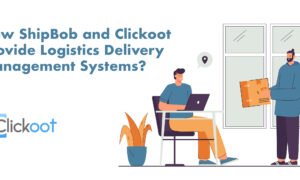There are a few options available for grocery ordering in Pakistan. Some of them are Dastgyr, Bazaar, Dumpling, and XStak. These online ordering systems will help you find what you’re looking for and place an order for it. They’ll also notify you when your order arrives.
Clickoot Presents the Best Grocery Ordering System in Pakistan
Clickoot has made a lot of changes to the way the grocery ordering system in Pakistan works. This has helped them win a large number of customers. With the help of the new system, people can now get their groceries delivered right to their doorstep. And, if they don’t want to drive, they can now use the ride-sharing service. The system is very convenient and makes life easier for people who live in areas that are not convenient for walking to the store. It also offers discounts to those who order from them.
Dastgyr
Dastgyr has been onboarded by over 35,000 retailers and has executed over 250,000 orders in Pakistan. The company’s customers are mainly small mom-and-pop shops, with an average working capital of less than $3,000. Dastgyr’s model is unique among grocery delivery system services in Pakistan, as it doesn’t own any inventory. Instead, it allows suppliers to ship products to its sorting center after receiving customer orders.
Dastgyr is an app-based platform connecting small retailers with multiple wholesalers, manufacturers, and distributors. Its goal is to streamline the supply chain by bringing these buyers and sellers together through a digital platform. The app lets retailers create custom baskets and confirm next-day delivery.
Dastgyr has launched only three months ago, but it has already delivered thousands of orders to stores across Pakistan. The company has also received significant funding from EquiTie, a leading investment and advisory firm in Pakistan. The startup was founded by two former Airlift employees and is targeting Pakistan’s underserved B2B e-commerce market. Initially, Dastgyr was intended to replace the quick-commerce model.
Dastgyr’s funding comes at a critical time for Pakistan’s startup ecosystem. In order to thrive, the startup ecosystem must address key local problems and offer solutions tailored to local markets. Dastgyr is in an ideal position to do so.
Bazaar
In Pakistan, a $170 billion retail industry is rapidly growing, with nearly 5 million small and medium-sized retailers. The challenge for these retailers has been complicated supply chains. They might receive 30 deliveries a day, and they must buy basic materials from local wholesalers. The lack of a single point of purchase and complex supply chain logistics can lead to a retailer closing up shop. Using an online grocery ordering service like Bazaar eliminates these problems.
Since launching last year, Bazaar has attracted over 750,000 merchants and has a 90 percent retention rate. The service has also attracted a number of other startups that provide digital order forms to make the process more convenient for merchants. However, Jangda believes the market is still not ready for a dukaan product. He argues that there is not enough consumer demand in Pakistan for this type of online shopping system.
Bazaar has received significant investment from investors, including a $1M round of financing. It plans to expand its last-mile network to serve retailers across 50 towns and cities across the country. It also plans to expand into other categories and product lines. While it has initially targeted the grocery retailer segment, the company believes it can collaborate with businesses in other industries.
The app is a helpful way to get groceries delivered without ever having to leave your home. It offers free delivery to your door and allows you to select from over 15k products. Despite the fact that grocery delivery services charge more for smaller orders, they are often more cost-efficient than visiting a store to purchase the things you need.
Dumpling
As one of Pakistan’s leading grocery ordering system services, Dumpling helps customers find their favorite groceries in an easy, fast, and convenient way. It does this by advancing money to customers’ Dumpling credit cards. When the customer completes their shopping, Dumpling will charge their card for the total price of the order plus fees. The company then reimburses customers if sufficient funds are available or when they claim to be victims of fraud.
Dumpling’s coaching program provides access to a staff coach with experience running grocery delivery gigs. The coaches can answer questions about website and app functionality, as well as marketing advice. The coaches also help shoppers build their customer base. While these coaching sessions are not intended to replace a store owner’s role in attracting customers, they can be a great source of support when it comes to attracting customers.
Dumpling offers drivers the opportunity to set their own service fees and tips, but it’s important to note that the drivers are not paid on a per-item basis, but on a percentage of the bill. Dumpling also allows drivers to set a floor rate for small orders, and higher rates for larger orders. However, business owners shouldn’t be too eager to increase their delivery charges, as they might drive away customers and reduce tips.
Dumpling offers a unique grocery delivery service compared to similar services. It works by connecting shoppers and personal shoppers and provides a shared experience for customers. Similar to Uber or Lyft, Dumpling helps shoppers earn money by empowering them to become small business owners.
XStak
With a comprehensive feature set, XStak provides real-time visibility into operations, and payment security, and supports multiple payment options. The platform also has a simple, user-friendly interface, which makes it ideal for a business of any size. Its innovative approach has resulted in a surge in e-grocery in Pakistan and has made the delivery of groceries more efficient than ever.
Despite the fact that the market for online grocery delivery systems is still small in Pakistan, it is growing quickly. According to recent data, there are more than two dozen online grocery services operating in the country. Of those, approximately 15 are active and competing for market share. While some of these online grocery services are faulty or under maintenance, there are still many more that are fully functional and serving the needs of online grocery shoppers.
AaramShop is a headless quick commerce platform from India that began operations in Pakistan in October 2014. The platform works in partnership with other retailers to deliver groceries to their customers. AaramShop’s network includes 600 retailers and serves all areas of Lahore and Karachi.
QnE
The number of grocery ordering systems has grown in Pakistan in recent years. The growth has been driven primarily by the emergence of B2B and B2C solutions. These services typically rely on curbside deliveries from distributors, presenting many challenges for traditional retail stores and kiryana owners.
QnE provides a variety of grocery and other products. It is a complete E-mart for Pakistan. The company offers quality products at reasonable wholesale prices. It also offers multiple payment methods, including contactless delivery. Its wide selection of products, categories, and delivery options makes it an excellent choice for online grocery shopping.
While Airlift raised a bumper series B round, it quickly expanded its delivery network, opening multiple warehouses in major cities. In addition, it had a “30-minute” delivery model, which at the time was an industry first. However, the rapid expansion had negative consequences. According to one former employee, the company’s warehouses cost approximately 1.7 million rupees per month in rent and electricity bills.
Another leading grocery ordering system in Pakistan is Cheetay. It operates in 12+ cities in Pakistan and recently launched a delivery service for organic milk. Its headquarters is in Lahore, and its app allows users to order food from restaurants, as well as home-cooked meals. It offers its customers a variety of food from traditional Lahore restaurants. If you are in the mood for a meal, you can even order food from restaurants that closed years ago.
Despite its popularity and success, it has also been plagued by a plethora of pitfalls. The downside is that the service does not include online payment options. It also does not offer any free delivery services, and many services require you to sign up for a monthly subscription plan to get the discounts.















































